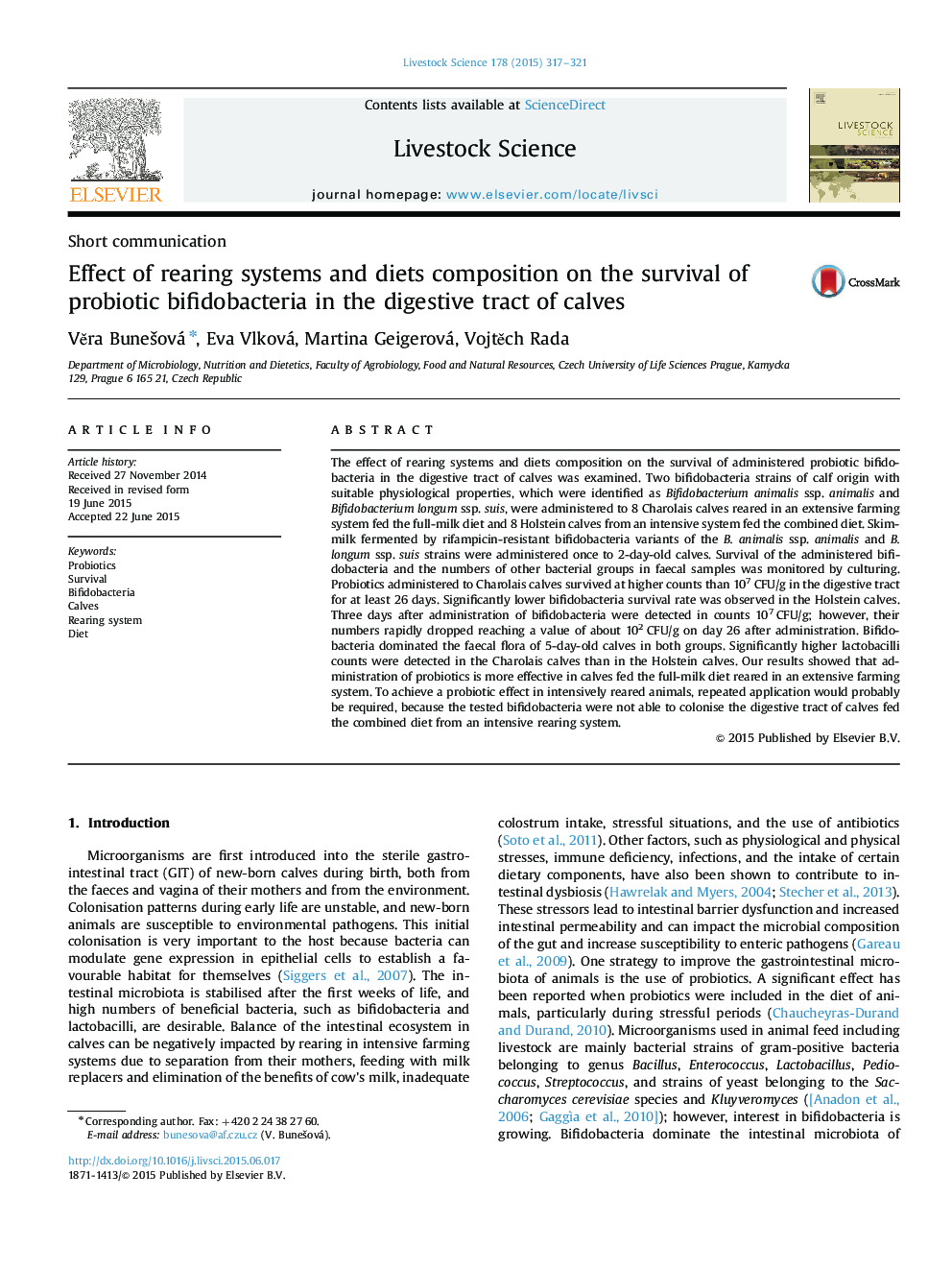| Article ID | Journal | Published Year | Pages | File Type |
|---|---|---|---|---|
| 2447093 | Livestock Science | 2015 | 5 Pages |
•Strains B. animalis ssp. animalis and B. longum ssp. suis were fed to calves.•The strains were able to pass through the GIT in high numbers.•Temporary colonisation in the intestine was strongly affected by the farming system and diet composition.•The bifidobacteria survived significantly better in the extensively reared calves.
The effect of rearing systems and diets composition on the survival of administered probiotic bifidobacteria in the digestive tract of calves was examined. Two bifidobacteria strains of calf origin with suitable physiological properties, which were identified as Bifidobacterium animalis ssp. animalis and Bifidobacterium longum ssp. suis, were administered to 8 Charolais calves reared in an extensive farming system fed the full-milk diet and 8 Holstein calves from an intensive system fed the combined diet. Skim-milk fermented by rifampicin-resistant bifidobacteria variants of the B. animalis ssp. animalis and B. longum ssp. suis strains were administered once to 2-day-old calves. Survival of the administered bifidobacteria and the numbers of other bacterial groups in faecal samples was monitored by culturing. Probiotics administered to Charolais calves survived at higher counts than 107 CFU/g in the digestive tract for at least 26 days. Significantly lower bifidobacteria survival rate was observed in the Holstein calves. Three days after administration of bifidobacteria were detected in counts 107 CFU/g; however, their numbers rapidly dropped reaching a value of about 102 CFU/g on day 26 after administration. Bifidobacteria dominated the faecal flora of 5-day-old calves in both groups. Significantly higher lactobacilli counts were detected in the Charolais calves than in the Holstein calves. Our results showed that administration of probiotics is more effective in calves fed the full-milk diet reared in an extensive farming system. To achieve a probiotic effect in intensively reared animals, repeated application would probably be required, because the tested bifidobacteria were not able to colonise the digestive tract of calves fed the combined diet from an intensive rearing system.
